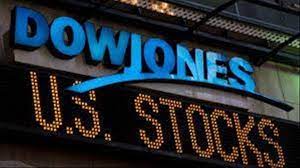Wall Street jumped on Wednesday after the minutes from the Federal Reserve’s most recent monetary policy meeting showed its members were unanimous in their sentiment that the U.S. economy was very strong as they grappled with how to rein in inflation without triggering a recession.
Interestingly, most participants judged that 50 basis point increases in the target range would likely be appropriate at the next couple of meetings.
In addition, many participants judged that expediting the removal of policy accommodation would leave the Committee well positioned later this year to assess the effects of policy firming and the extent to which economic developments warranted policy adjustments.
That move pales in comparison to the ones made by the Russell 2000 (+1.0%) and S&P Midcap 400 Index (+1.0%), which have provided some prime, lower-priced components for traders engaging in more speculative pursuits in front of the minutes.
The overall stock market, however, has rebound potential given how far it has fallen since the start of the year. That understanding helps explain why there has been some resilience today in the face of selling efforts and why the advance-decline line skews comfortably in favor of advancing issues at this juncture.
Better-than-feared reports from homebuilder Toll Brothers (TOL) and apparel and accessories retailer Nordstrom (JWN) have put a rebound bid in the beaten-up consumer discretionary sector (+2.2%). Similarly, it has helped sentiment in that space that Dick’s Sporting Goods (DKS) has overcome some disappointing FY23 EPS guidance, which it attributed to the expected impact of evolving macroeconomic conditions, to trade higher.
The consumer discretionary sector is the only sector, along with the energy sector (+1.2%), that has gained at least 1.0% today. Currently, eight of the 11 S&P 500 sectors are showing modest losses.
The conditions for durable goods orders proved to be reasonably good in April, if not altogether as strong as expected. New orders for durable goods increased 0.4% month-over-month (consensus 0.6%) while new orders for durable goods, excluding transportation, rose 0.3% month-over-month (consensus 0.6%).





